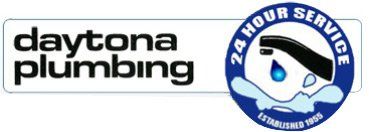How to Prioritize Plumbing Upgrades
You recently opened a home equity line of credit and now you're ready to renovate. Where should you start? Begin with the basics and tackle your home's old, worn, or damaged plumbing first. If you can't decide which plumbing projects are most important when it comes to your home's value, take a look at the questions to ask.
How Old Are Your Fixtures?
While age doesn't always equal wear, an older plumbing fixture (toilet, sink, bathtub, or shower) is more likely to have a problem, break, or require replacement sometime in the near future. According to the International Association of Certified Home Inspectors (InterNACHI), toilets can last for up to a century. But the tank components typically have a significantly shorter lifespan of only five years.
When it comes to the rest of your bathroom, a fiberglass tub and shower can last more than two decades and a shower enclosure can have (when properly maintained) a 50 year lifespan. Your kitchen fixtures may not fare as long. InterNACHI notes most enameled kitchen sinks have a lifespan from five to ten years.
If you don't know the age of your fixtures, but they look worn or outdated, consider replacement. A new install adds years to your bathroom or kitchen's life and gives your home a fresh new look. New fixtures are also an ideal building basic beginning if you plan a total redesign. Choose a different color or shape of toilet, tub, or sink to match your new flooring, paint colors, or cabinetry.
What Are the Biggest Plumbing Problems?
Does your toilet constantly clog? Or does the hot water run out after mere minutes in the shower? Choose the most problematic plumbing areas to tackle first. Chances are with a home equity line of credit you have a fairly large sum of money to draw from. This means you can finally tackle the plumbing issues that have bothered you for months or even years.
Choose the plumbing problems that impact your daily life the most or:
- Create other home issues/damage. Does your leaking toilet run through the floor and into the kitchen ceiling? Start with plumbing issues that can cause damage to other areas of your home.
- Offend the senses. A toilet backup or clogged sink drain can result in unpleasant odors that make your home hard to live in.
- Are dangerous. Anything that poses a safety risk should move to the top of your to-do list immediately.
What Problems Don't You See?
While a leaking sink or cracked toilet are obvious issues, a clog deep within your home's drainage system or worn pipes are often hidden from sight. With a home equity line of credit, you have extra money to spend on these not-so-visible issues.
If you can't see a problem, how can you find it? The first steps to take include:
- Listen to your plumbing. Can you hear a drip, bang, or other odd noise? This may indicate a not-so-visible issue.
- Smell the area. Do you smell sewage? This could indicate a backup in the main drain.
- Contact a plumber. A home plumbing inspection may reveal problems. Not only can a plumber evaluate your home's pipes, hot water heater, and fixtures, but they can also diagnose and make repairs or replacements.
Do you need an expert to inspect, repair, or replace part of your home's plumbing system? Contact Daytona Plumbing for more information.






